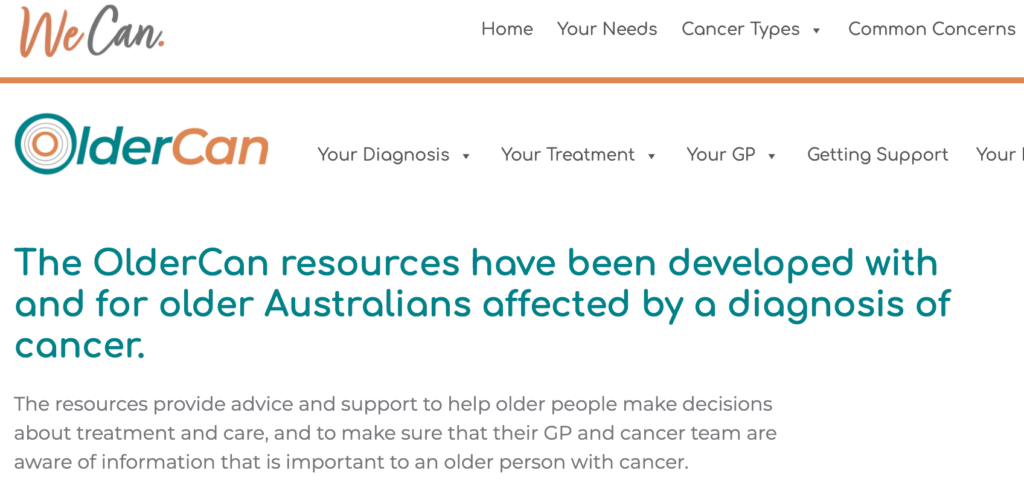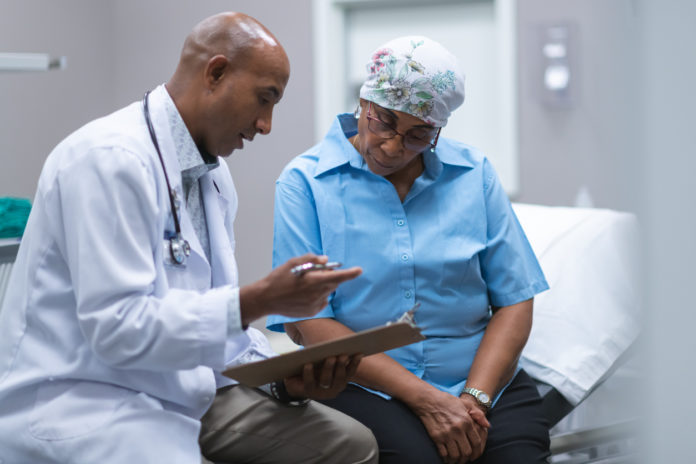A new resource is empowering older Australians living with cancer to discuss and prioritise their needs when making decisions about treatment and care.
One in two older Australians have cancer by the time they are 85, yet research shows they have less access than younger people to acute treatments, information on side effects, and opportunities to take part in clinical trials.
University of Melbourne Chair in Cancer Nursing and project lead, Professor Mei Krishnasamy, said the OlderCan website included information and templates to help older adults share important personal information with their cancer team, GP and family.
Professor Krishnasamy said postcards alerting people to the resources would be available in medical waiting rooms and cancer centres, and the main resource was designed to be printed for those without computers.
“We all have different needs and priorities. Some people want to try all treatments available, and others may not want treatment that impacts their quality of life,” she said.

“Whatever their preference, people need to feel empowered to have open and honest conversations with their cancer teams to facilitate tailored decision making.
“Individuals can use our ‘This is me’ form to start discussions with their cancer team on their physical, emotional, and social needs, and what they value for their quality of life.
Professor Krishnasamy said the novel resource will prompt discussions to change the trajectory of care for these patients, setting them on a person-centred pathway.
“By providing cancer teams with insights into a person’s priorities, the OlderCan resources will enable older patients to achieve treatment aligned with their preferences and goals,” Professor Krishnasamy said.
Cancer treatments often have side effects that can impact quality of life. Understanding what is important to patients can initiate discussions on how these side effects may affect them, and whether acute treatment is the best option.
Marilyn Dolling, a 78-year-old bowel cancer patient, used her experience as a patient and carer to inform the development of OlderCan. She is also helping her older peers learn to use the relevant technology.
“It is important to discover your priorities in a world of changed plans, and to make new plans with the ability to change them, rather than not making plans at all – including personal or advanced care plans,” Ms Dolling said.
“OlderCan provides people over 65 years old with resources to share what is important to us with our cancer teams, so that the care we receive can help us to achieve our plans and dreams.”


